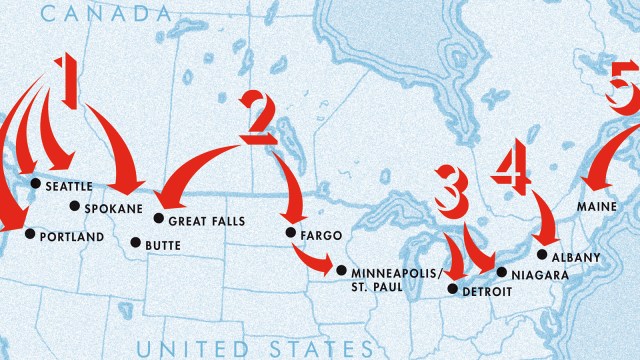Does altruism exist? Science and philosophy weigh in

We often look up to selfless individuals as paragons of virtue. We remember those who saved others during the Holocaust at great personal risk as saints; we look in awe at those who turn down potential billions on medical patents in favor of keeping the cost of vaccines low; we praise those who give their lives for others as heroes.
Given how we typically view altruistic people favorably it is easy to understand why many ethical systems and religions would give altruism, the concern for the well-being of others, a place of honor. Jesus Christ preached on altruism frequently, Kant praised it, and we often think of the people who spit on it as monsters. Which makes the debate over if altruism even exists shocking.
What is psychological egoism?
Every philosophy 101 professor has heard the argument before:
- We act as we are motivated to by our desires.
- When we act on our desires, we are seeking the feeling of satisfaction that comes from fulfilling them.
- Since feeling satisfied benefits us, all actions have some level of self-interest to them.
If this argument is correct, then when I do something altruistic, saving a drowning child, for example, I am at least partially doing it because I need to fulfill my desire. Because of this, I cannot claim to have been entirely altruistic, if I can say I was altruistic at all!
This position is called psychological egoism and can also be argued for empirically. We can all think of a case where somebody was genuinely motivated by self-interest but tried to write their actions off as being for the greater good. Proponents of psychological egoism often argue that this is true for everybody; that we all act in our self-interest all the time and only rationalize our actions later.
Is altruism impossible?
There are two fundamental objections to this argument. The first is that it works a little too well; it is impossible to disprove it empirically.
Imagine for a moment that you are trying to come up with an example of a genuinely altruistic action for a person who subscribes to this idea; they can always devise a secret motive for anybody which make them at least somewhat egotistical. If you say that a person helped a drowning pig out of real concern for the animal, the egoist could say they only did it to soothe their conscience.
If you suggest Jonas Salk really did care about others when he refused to profit off the polio vaccine, the egoist can propose that he only wanted to look good. Since a person just trying to look good by taking a seemingly altruistic action wouldn’t admit it, it is impossible to disprove that they have this egotistical motivation.
However, ever since Karl Popper wrote his philosophy of science, falsifiability has been held up as a vital part of any theory. Anything which cannot be proven false is now considered unscientific and problematic. Such a view also doesn’t really tell us very much, if it just restates how everybody thinks already. But what about the logic? It seems pretty solid.
Beware: Thin logic ahead
The logic also isn’t quite as sound as it looks. It relies on a particular conception of desire and satisfaction. It is most frequently compared with how we experience the desire to eat.
We desire to eat because of how we feel. We then eat and feel satisfaction at having fulfilled our desire. We do not eat for the sake of eating in this case, but rather to feel satisfaction afterward.
However, some desires don’t function this way. The Stanford Encyclopedia of Philosophy gives an excellent example of one:
Suppose, for example, that I want my young children to be prosperous as adults long after I have died, and I take steps that increase to some small degree their chances of achieving that distant goal. What my desire is for is their prosperity far into the future, not my current or future feeling of satisfaction. I don’t know and cannot know whether the steps that I take will actually bring about the goal I seek; what I do know is that I will not be alive when they are adults, and so even if they are prosperous, that will give me no pleasure. (Since, by hypothesis I can only hope, and do not feel confident, that the provisions I make for them will actually produce the good results I seek for them, I get little current satisfaction from my act.) It would make no sense, therefore, to suggest that I do not want them to be prosperous for their sake, but only as a means to the achievement of some goal of my own.
This example shows us that the idea of desire working like hunger is not always true, which derails the argument. From a logical standpoint, psychological egoism is refutable. Most philosophers hold that altruism is possible as there doesn’t seem to be a reason why we can’t act altruistically, even if we don’t.
What does science have to say?
Science isn’t of much help, as various studies and books that try to understand our mental processes during acts of giving show mixed results that can be interpreted any number of ways.
A study that used MRI machines to map the responses of brains to altruistic behavior found that several parts of our brain are involved in making altruistic decisions. Altruistic giving lights up the part of our brains associated with emotional processing, mentalizing and perspective taking, self/other discernment, and our reward centers.
The authors suggest that “Together, activation in these regions is likely if individuals are actively engaged in thinking about not only the emotions and feelings of others but also about their own thoughts, feelings, and desired outcomes.”
These findings suggest that our brains get some reward for altruistic behavior, even if the motivation was selfless. However, the authors warn that “Future research is required to characterize the ecological validity of altruistic behavioral research on the way people actually live their lives.”
Richard Dawkins famously suggested that we have a “selfish gene.” This doesn’t mean that our genetic codes have wills they act on, or that we are hardwired for egotism either. Instead, he means that evolution favors genes that create consequences favoring their own survival. He uses this as a way to explain the existence of both egotistical and altruistic action since both motivations can be of use to survival.
This does suggest, however, that all altruistic action is for the benefit of our DNA. This might mean true altruism doesn’t exist at a fundamental level. However, the people who work for the benefit of others typically don’t consider the survival of their genome when they act.
On the side of true altruism being real, we have professor C. Daniel Batson. He summarized a lifetime of experiments on altruistic behavior in his book Altruism in Humans.His conclusion is true altruism is possible, and that empathy is a primary motivator for these actions. He does, however, acknowledge that many factors are at play and that lab experiments always have shortcomings.
While the question of if we can act out of pure altruistic concern for others remains unsettled, our admiration for those who seem to remains well established. It may be some time before we know for sure if anybody can truly be altruistic. In the meanwhile, it can’t hurt to presume it’s real.





